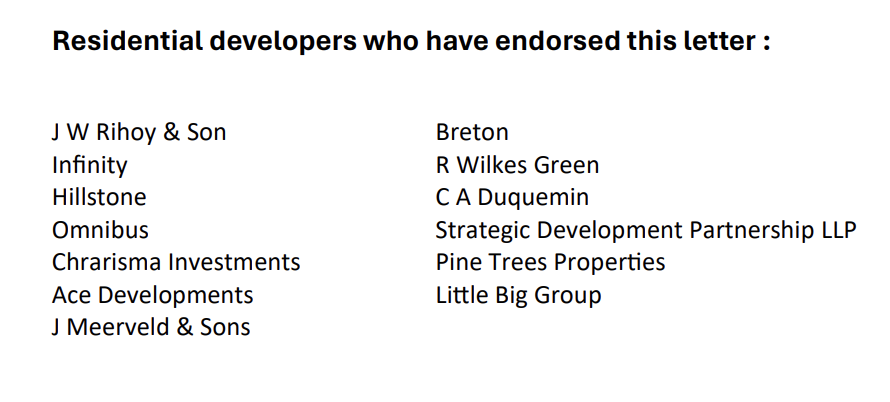


Several developers have strongly backed an attempt to scrap a controversial housebuilding policy, but the politician with responsibility for social housing is calling for the review into planning laws to be completed first.
A group of deputies are hoping to remove a requirement for private housing sites of more than 20 units to provide a portion of that land for social housing purposes in the hope of speeding up construction which has stalled in the past decade.
A letter sent to all deputies and the media, penned by Guernsey Construction Forum Chair John Bampkin, and co-signed by over a dozen local developers, said the petition would be the “fastest way possible” to increase the supply of private housing.
The group wants at least an eight year pause in GP11 before a similar policy is considered, which they say is already out-of-date and “unworkable” after being implemented in 2016.
They said its “processes are too complicated, too slow, too difficult to administer, inflexible and contains too many fundamental uncertainties”, which added to an already complicated planning process in their view.
But Deputy Peter Roffey, President of Employment & Social Security, which has responsibility for States and social housing, would prefer for the outcome of the Island Development Plan review to be considered before measures are considered.
That review is ongoing through the Development & Planning Authority and is considering the suitability of GP11 alongside wider concerns on the supply of new housing.

Pictured: Deputy Peter Roffey.
“The DPA has already commenced a full review of GP11 which I understand will be completed within months. Indeed, they have gone to the expense of engaging expert consultants to help in the task. I know because those consultants recently consulted ESS,” Deputy Roffey said.
“Although the Requête isn’t explicit on this matter – the word in political corridors is that the ultimate aim is to simply suspend GP11 for eight years. That is completely at odds with the narrative that those criticising the policy have been putting forward over the last couple of years."
This ambition was confirmed in the letter sent by the Construction Forum.
The States is embarking on several get-arounds for GP11, including tariff payments from private developers towards different plots, or simple contributions to the public sector for social housing purposes.
“If it is simply suspended that goes out of the window,” Deputy Roffey said. “Private developers will not be required to provide either plots or cash, and as a result much more taxpayers’ money will be needed for Affordable Housing."
The developers say that the policy, which has delivered no housing to date, has disincentivised private housebuilding and cost the island hundreds of new homes since it was introduced.
“It is only the private sector which has the resources and capacity to mobilise at speed and to increase the housing supply,” Mr Bampkin said.
“GP11 has introduced many more fundamental uncertainties for developers than previously existed and added delay and complexity to the Planning process.”

Pictured: The developers which signed the letter.
“A vicious circle has developed where developers’ cost of land and cost of building has dramatically increased to a point where they do not allow the industry standard margin of 20% of sales value, which disincentivises investment and stalls much residential building," continued Mr Bampkin.
“An eight-year suspension of GP11 will allow private housebuilding to re-start and once again build up momentum to generate much needed housing supply for islanders.”
The group also claimed that GP11’s failure to produce new social housing by itself has “forced” the Guernsey Housing Association to buy large plots of land for itself, which they say has led to direct competition with private firms and inflated land and therefore house values as a result.
It also said the complicated legal agreements over control of plots known as covenants are creating an obstacle to securing financing from banks and lenders.
If the Requête is successful it will direct the States to prioritise the changes above all other work. Deputy Roffey called it a “very blunt resolution.
“I hope members will be provided with a list of the urgent legislation likely to be impacted.”
Comments
Comments on this story express the views of the commentator only, not Bailiwick Publishing. We are unable to guarantee the accuracy of any of those comments.